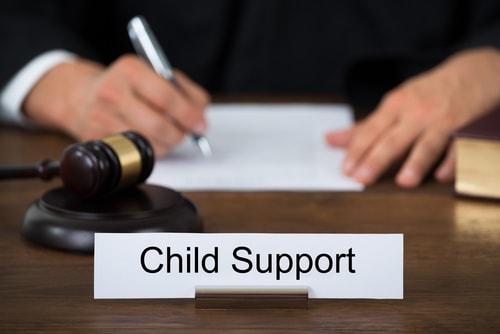 630-393-3111
630-393-3111
4200 Cantera Drive, Suite 200 | Warrenville, IL 60555
Recent Blog Posts
What Can I Do If My Ex Is Not Paying Child Support in Illinois?
 Parenting after a divorce can be a challenging proposition. A single parent’s struggles are only made greater by an ex-spouse who has stopped paying child support. While your ex-spouse may provide excuses about why payments have stopped or are behind, obligations for child support are court-ordered and not subject to modification by the parties involved. Only the court can approve a modification, and only then with a legitimate and qualifying reason. To ensure your child support payments are made on time, the first step is to contact an experienced child support enforcement attorney.
Parenting after a divorce can be a challenging proposition. A single parent’s struggles are only made greater by an ex-spouse who has stopped paying child support. While your ex-spouse may provide excuses about why payments have stopped or are behind, obligations for child support are court-ordered and not subject to modification by the parties involved. Only the court can approve a modification, and only then with a legitimate and qualifying reason. To ensure your child support payments are made on time, the first step is to contact an experienced child support enforcement attorney.
Options for Child Support Enforcement
Child support payments serve to assist the parent with the greater allocation of parental responsibilities to provide basic needs for their children. If those payments are late, less than required, or stop altogether, it could have a serious impact on the children’s life and wellbeing.
Ten Most Common Reasons Couples Seek a Divorce
 While as many as 40 percent of marriages end in divorce in the United States, each marriage will have its own unique relationship dynamics and combination of factors that led to the decision to split. However, it is clear that similar reasons plague many marriages. In most cases, there is not just one reason, but likely a combination of different factors that caused the divorce. If your marriage is headed for a divorce, it is time to talk to an experienced divorce attorney.
While as many as 40 percent of marriages end in divorce in the United States, each marriage will have its own unique relationship dynamics and combination of factors that led to the decision to split. However, it is clear that similar reasons plague many marriages. In most cases, there is not just one reason, but likely a combination of different factors that caused the divorce. If your marriage is headed for a divorce, it is time to talk to an experienced divorce attorney.
Wide-Ranging Reasons for the End of a Marriage
From traits that you just cannot stand about your partner to difficult circumstances in your relationships, there can be many contributing factors to a divorce. Family and relationship experts have compiled lists of dozens of causes for divorce, and they run the gamut from very simple to much deeper.
Here are ten of the most common reasons that divorced adults gave as the reasons their marriage fell apart.
What Types of Restraining Orders Are Available in Illinois?
 For those in an abusive relationship, using the force of law to keep your abuser away can be the key to safety. By securing an order of protection, sometimes known as a restraining order, you can again begin to feel a level of safety in your home. At Calabrese Associates, P.C., we have been helping victims of domestic abuse for over 20 years and are ready to help you secure a restraining order to get you and your children the security you need.
For those in an abusive relationship, using the force of law to keep your abuser away can be the key to safety. By securing an order of protection, sometimes known as a restraining order, you can again begin to feel a level of safety in your home. At Calabrese Associates, P.C., we have been helping victims of domestic abuse for over 20 years and are ready to help you secure a restraining order to get you and your children the security you need.
Definition of Domestic Violence in Illinois
Under the Illinois Domestic Violence Act, an accused abuser must have a relationship with the victim. This can include current and former spouses, dating and romantic partners, family members including children and parents, and assistants to adults or children with disabilities.
Actions that are classified as acts of domestic violence include:
- Physical abuse, including sexual abuse, use of physical force, and behavior that puts the victim at risk of physical harm
Is My Illinois Prenup or Postnup Valid?
 To protect individual property, safeguard business assets, and various other reasons, many couples today are choosing to sign prenuptial or postnuptial agreements. While no one goes into a marriage expecting to get divorced, it can be beneficial to both parties to prepare for the possibility, since almost half of all marriages do end in divorce. By preparing a valid agreement, both parties can protect their financial interests and remove any uncertainty should a divorce come about. However, there are certain issues that can invalidate an agreement that both spouses should understand.
To protect individual property, safeguard business assets, and various other reasons, many couples today are choosing to sign prenuptial or postnuptial agreements. While no one goes into a marriage expecting to get divorced, it can be beneficial to both parties to prepare for the possibility, since almost half of all marriages do end in divorce. By preparing a valid agreement, both parties can protect their financial interests and remove any uncertainty should a divorce come about. However, there are certain issues that can invalidate an agreement that both spouses should understand.
Issues That Can Invalidate an Agreement
Whether the agreement is signed before the couple gets married or once they are already married, a prenuptial or postnuptial agreement still has the same function and can be used during the divorce to settle issues including the division of marital assets and spousal maintenance payments.
My Spouse is Posting About Me on Social Media During Our Divorce
 In the age of omnipresent social media, it is natural that some couples will take to posting on Twitter, Facebook, and other sites while they are going through a divorce. Some studies have even shown that apps such as Facebook play a role in an increasing number of divorces. But what, if anything, is appropriate to post and what recourse do you have when your spouse starts sharing negative information?
In the age of omnipresent social media, it is natural that some couples will take to posting on Twitter, Facebook, and other sites while they are going through a divorce. Some studies have even shown that apps such as Facebook play a role in an increasing number of divorces. But what, if anything, is appropriate to post and what recourse do you have when your spouse starts sharing negative information?
Actions to Take on Social Media During a Divorce
The best advice is for both parties to stay off social media during a divorce. Taking a step back can be healthy for your mental state and allow you to focus on your family and future. If you do choose to post, refrain from saying anything negative about your spouse or their family and friends. Don’t post updates about how your divorce is proceeding, rather keep your posts positive.
It may be a good time to search the web for any pictures or posts of yourself that you don’t want to be shown anymore. It is also a good idea to pull back from sharing too much information by increasing your privacy settings and changing or hiding your relationship status. Once the divorce is over and any hostility may have calmed down, you can always relax the settings again and update your status.
Am I Responsible for My Child’s College Bills After a Divorce in Illinois?
 Every parent wants to see their child grow up to be a successful adult. Post-secondary education, whether at a university, community college, or technical training, can be incredibly important for a young adult’s career and earning potential throughout their lifetime. After a divorce, you may be unclear about who is responsible for providing financial assistance for your child’s college expenses, especially since they are no longer a minor. Under Illinois law, unlike most other states, a spouse can seek financial support from their ex after a divorce, even after the child turns 18.
Every parent wants to see their child grow up to be a successful adult. Post-secondary education, whether at a university, community college, or technical training, can be incredibly important for a young adult’s career and earning potential throughout their lifetime. After a divorce, you may be unclear about who is responsible for providing financial assistance for your child’s college expenses, especially since they are no longer a minor. Under Illinois law, unlike most other states, a spouse can seek financial support from their ex after a divorce, even after the child turns 18.
Educational Assistance After a Divorce
While in many divorce cases, child support payments end after the child turns 18. However, Illinois law allows a divorced parent to seek educational expenses for their child from the other parent. Many divorcing parents may come to an agreement on each’s share of postsecondary education costs, either as part of the divorce settlement or in post-divorce agreements. However, if there is disagreement on the amount of support or even whether support should be provided, the case may end up in court. A judge will decide on each parent’s share of educational expenses based on their financial situation, as well as the financial resources that the child has or could obtain through financial aid or scholarships.
Should I Seek to Establish Paternity of My Child?
 In most cases in which a child is born to unwed parents in Illinois, only the mother is a legal parent of the child and only her name will automatically appear on the child’s birth certificate. Actions must be taken by one or both parents to establish legal paternity for the child’s father. Even if you are no longer married or unsure of the future of your relationship, there are benefits both to the father and to the child to establishing a legal parent-child relationship.
In most cases in which a child is born to unwed parents in Illinois, only the mother is a legal parent of the child and only her name will automatically appear on the child’s birth certificate. Actions must be taken by one or both parents to establish legal paternity for the child’s father. Even if you are no longer married or unsure of the future of your relationship, there are benefits both to the father and to the child to establishing a legal parent-child relationship.
Benefits to the Father and the Child for Establishing Paternity in Illinois
The benefits of a positive relationship between a father and a child are well established. However, there are certain legal benefits that each is entitled to with legally recognized paternity.
Benefits to the child include:
- Eligible for the father’s life and health insurance benefits
- Access to the father’s Social Security and veterans’ benefits, when applicable
My Ex Just Got a New Job. Can I Get More Child Support?
 After a divorce, many parents take a while to get used to their new financial situations. If you have taken on more of the parental responsibility and parenting time, you may be receiving child support payments. The payments may have been ordered by the court or you and your ex-spouse may have come to an amicable resolution and worked together to negotiate an agreement that met the needs of the children and the legal requirements.
After a divorce, many parents take a while to get used to their new financial situations. If you have taken on more of the parental responsibility and parenting time, you may be receiving child support payments. The payments may have been ordered by the court or you and your ex-spouse may have come to an amicable resolution and worked together to negotiate an agreement that met the needs of the children and the legal requirements.
Regardless of how it was determined, the payment amount reflects the situation of both parents at the time the divorce agreement was finalized. But, situations can change as people move, get new jobs, or develop new medical conditions. Illinois law allows for modifications to child support and spousal maintenance payments based on a variety of factors.
Changes in Child Support Payments
Child support payments are largely based on the incomes of both parents and the number of children being supported. If one parent has more parental responsibility and parenting time, those differences will also be considered when determining child support payments. Other needs that your child may have that can be taken into account when negotiating child support include daycare and education tuition, medical needs, and extracurricular activities.
Collecting Child Support from an Unemployed or Underemployed Parent
 The Bureau of Labor Statistics reports that approximately 5.9 million people were unemployed in April of this year. If you or your child’s other parent is unemployed or underemployed, you may wonder how this can influence child support calculations. Presently, child support in Illinois is calculated via the income shares model. This calculation method uses both parents’ net incomes to determine how much a parent pays in child support. What happens if a parent’s income is very low?
The Bureau of Labor Statistics reports that approximately 5.9 million people were unemployed in April of this year. If you or your child’s other parent is unemployed or underemployed, you may wonder how this can influence child support calculations. Presently, child support in Illinois is calculated via the income shares model. This calculation method uses both parents’ net incomes to determine how much a parent pays in child support. What happens if a parent’s income is very low?
Voluntary Unemployment Versus Involuntary Unemployment
Some people find themselves laid off due to budget cuts, the COVID-19 pandemic, or other reasons. They want to work but cannot find or keep a job. Others choose not to work or make little effort to find suitable employment. Illinois courts handle voluntary unemployment and underemployment differently than involuntary employment difficulties. A parent who is unwillingly unemployed or underemployed may be able to reduce their child support obligation through a child support modification. However, the court will have little sympathy for a parent who chooses not to work.
Considering Divorce? Your Child’s Best Interests Come First
 A divorce is hard under the best of circumstances, especially when children are involved. Many times, disputes over parental rights and responsibilities can resemble all-out, head-to-head battles, with each parent fighting tooth and nail for their own individual interests: Maximum child custody, maximum parenting time (visitation), all at the expense of the other parent. In addition, there is frequently a large dose of resentment and ill will added in. What is all too often undervalued in this scenario is the one factor that the courts will ultimately use most to decide the final parenting plan: What is best for the children?
A divorce is hard under the best of circumstances, especially when children are involved. Many times, disputes over parental rights and responsibilities can resemble all-out, head-to-head battles, with each parent fighting tooth and nail for their own individual interests: Maximum child custody, maximum parenting time (visitation), all at the expense of the other parent. In addition, there is frequently a large dose of resentment and ill will added in. What is all too often undervalued in this scenario is the one factor that the courts will ultimately use most to decide the final parenting plan: What is best for the children?
The Evolution of Illinois Divorce Law
Fortunately, here in Illinois, recent years have seen a great deal of evolution in divorce law to improve how parenting plans are decided and carried out in daily life. Over time, “child custody” has become the “allocation of parental responsibilities.” Where questions of sole or joint custody once prevailed, present-day Illinois law now anticipates that both parents will participate in caring for the children, jointly negotiating a plan that specifies the respective rights and authority each has over their children. In particular, decisions about children’s education, medical treatment, religion, and other major facets of their lives now need to be allocated by consensus between the parents, in whatever proportions they agree to.


 4200 Cantera Drive, Suite 200, Warrenville, IL 60555
4200 Cantera Drive, Suite 200, Warrenville, IL 60555 630-393-3111
630-393-3111





